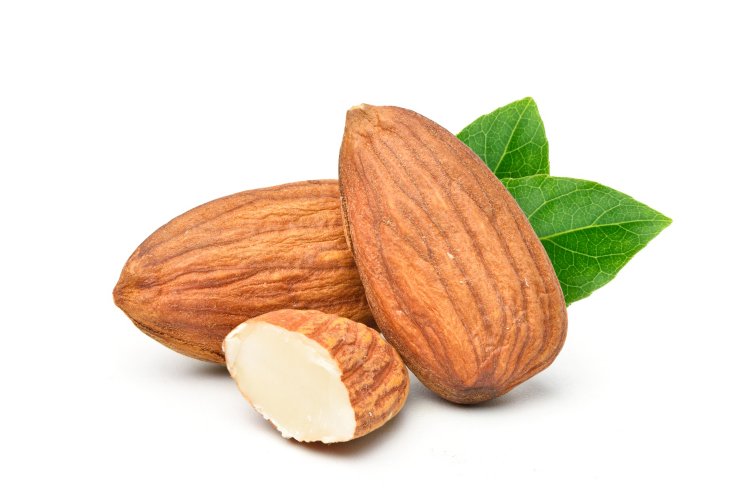Almonds: Nature's Nutritional Treasure
Almonds, often referred to as the "king of nuts," have earned this title not just for their delicious taste but also for their impressive nutritional profile and health benefits. Let's delve deeper into the marvels of almonds and explore why they are considered a nutrient-rich powerhouse.

Origins and Cultivation
Almonds, botanically classified as Prunus dulcis, are native to the Middle East, particularly Iran and surrounding regions. They have a rich history dating back thousands of years, with evidence of their cultivation found in ancient civilizations such as the Egyptians and Romans. Today, almonds are grown in various parts of the world, including the United States, Spain, Australia, and Italy, among others.
Nutrient Composition
One of the most striking features of almonds is their nutrient density. A one-ounce serving of almonds (approximately 28 grams) provides:
Protein: Almonds are a good source of plant-based protein, containing about 6 grams per serving. This makes them an excellent option for vegetarians and vegans looking to meet their protein needs.
Healthy Fats: The majority of the fat in almonds is monounsaturated fat, which is associated with heart health benefits. Additionally, almonds contain a small amount of polyunsaturated fat and are virtually free of unhealthy trans fats.
Fiber: Almonds are rich in dietary fiber, with about 3.5 grams per serving. Fiber promotes digestive health, helps regulate blood sugar levels, and contributes to satiety, aiding in weight management.
Vitamin E: Almonds are one of the best food sources of vitamin E, a powerful antioxidant that plays a crucial role in protecting cells from oxidative damage. A one-ounce serving of almonds provides over 7 milligrams of vitamin E, meeting nearly half of the recommended daily intake for adults.
Magnesium: Almonds are a good source of magnesium, an essential mineral involved in numerous physiological processes, including muscle function, nerve signaling, and bone health.
Health Benefits
The consumption of almonds has been linked to various health benefits, including:
Heart Health: Almonds have been shown to reduce levels of LDL cholesterol, improve lipid profiles, and decrease the risk of cardiovascular disease. The combination of monounsaturated fats, fiber, and antioxidants in almonds contributes to their cardioprotective effects.
Weight Management: Despite being calorie-dense, almonds can support weight management when incorporated into a balanced diet. Their combination of protein, fiber, and healthy fats promotes satiety and reduces overall calorie intake, potentially leading to weight loss or maintenance.
Blood Sugar Control: Almonds have a low glycemic index, meaning they cause a gradual rise in blood sugar levels. This makes them suitable for individuals with diabetes or those aiming to regulate blood sugar levels effectively.
Culinary Uses
Almonds are incredibly versatile and can be enjoyed in numerous ways:
- Raw or roasted as a convenient snack.
- Added to salads, oatmeal, yogurt, or baked goods for extra flavor and crunch.
- Processed into almond butter, almond milk, or almond flour for use in cooking and baking.
- Used as a topping for savory dishes or desserts.
In conclusion, almonds are a nutritional treasure that offers a host of health benefits and culinary possibilities. Whether eaten on their own, incorporated into recipes, or enjoyed in various forms, almonds provide a convenient and delicious way to boost nutrient intake and support overall well-being. By making almonds a regular part of your diet, you can savor their taste while nourishing your body with their abundant nutritional goodness.
Disclaimer
The information provided in this article is for educational purposes only and should not be considered medical advice. If you have any health concerns or are experiencing symptoms, it is important to consult with a healthcare professional, such as a doctor or clinic, for proper diagnosis and treatment. Always seek the advice of your doctor or other qualified health provider with any questions you may have regarding a medical condition. Do not disregard professional medical advice or delay in seeking it because of something you have read in this article.
What's Your Reaction?





















